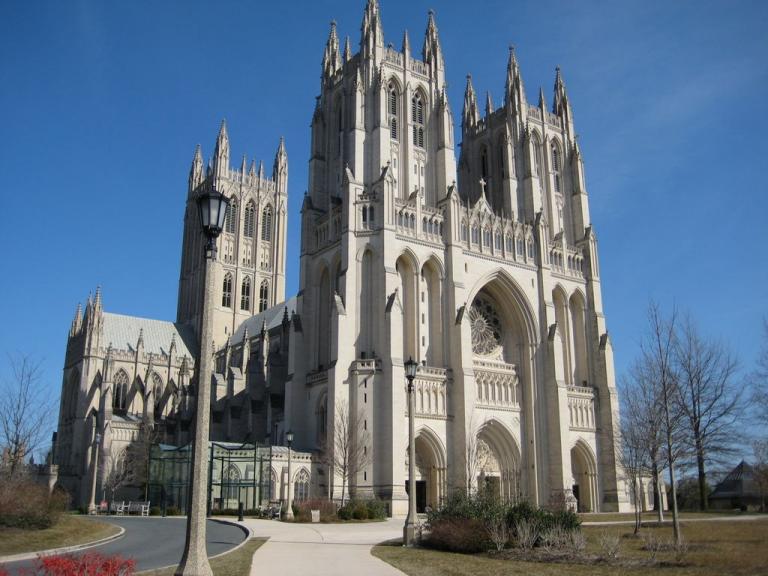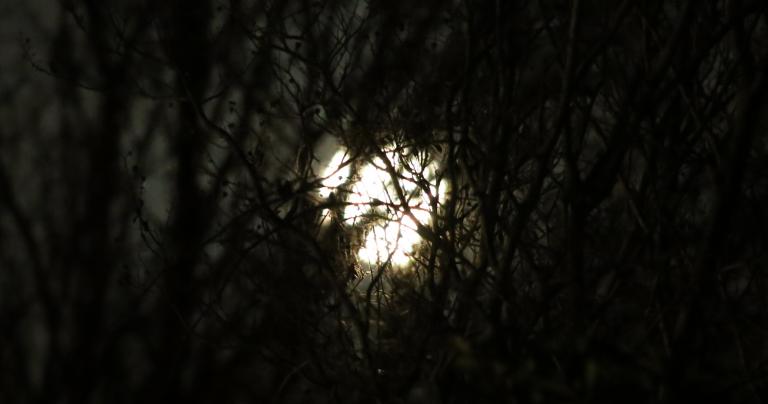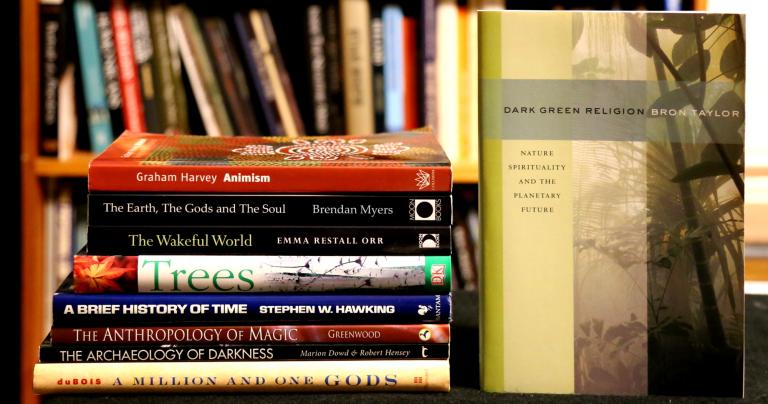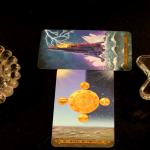Back before the Solstice, New York Times conservative columnist Ross Douthat stirred up a bit of controversy with a piece titled The Return of Paganism. It was less about Paganism and more about Christian hand-wringing over their continued decline in numbers and influence. It’s one of those essays that’s mostly right but critically wrong.
Manny Tejeda-Moreno responded with a Wild Hunt editorial that pointed out Douthat’s misunderstanding of modern Paganism. Tejeda-Moreno focused on the failure of Christianity to accept responsibility for its own contributions to its decline – some of which (like the clergy sex abuse scandals) are literally criminal.
Chas Clifton had a good piece on his blog where he pointed out that Douthat wasn’t really talking about us. Clifton said:
We are just an afterthought. He is … concerned about the loss of Christian hegemony, a concern raised a couple of generations ago in western Europe but only more recently popping up in North America, where Christianity was always the 600-pound gorilla in the religion room. He sees the … “paganism” that is replacing it as a falling away from The Truth.
All three of these essays are worth your time to read and think about. In this post, I want to go in a speculative direction: what if Ross Douthat is right? What if Paganism is returning – not as the fringe religion(s) it is today, but as the new civic religion of the Western world?
The Civic Religion of the United States
Wikipedia defines civic religion (or civil religion) as:
the implicit religious values of a nation, as expressed through public rituals, symbols (such as the national flag), and ceremonies on sacred days and at sacred places. It is distinct from churches, although church officials and ceremonies are sometimes incorporated into the practice of civil religion.
The civic religion of the United States includes things like the Pledge of Allegiance, Memorial Day observances in National Cemeteries, and Presidential inaugurations. We saw it last month with the state funeral of former President George H.W. Bush.
President Bush’s funeral was held at the Washington National Cathedral. Did you know we have a national cathedral? A lot of people don’t. We have it because in 1791 President George Washington commissioned plans for “a great church for national purposes.” Construction didn’t begin until 1907 and it wasn’t finished until 1990. It was build entirely with private funds – no tax dollars were involved.
Unlike so many of the famous government buildings and monuments in Washington that resemble Greek temples, the National Cathedral built in Gothic style. It intentionally invokes Westminster Abbey in London. But while in the United States religion and state are separate (or at least they’re supposed to be) there will always be occasions that require ceremony and solemnity, and that appeal to higher powers… or at least, to higher values.
Ceremonial Deism
The National Cathedral is an Episcopal church. I’m old enough to remember when the Episcopal Church was called “the Republican Party at prayer.” Of course, that was the party of Dwight Eisenhower and Gerald Ford, not the party of Donald Trump and Ted Cruz. The point is that those in power arranged for the National Cathedral to be managed by the church of those in power.

The United States is an officially secular country. But President Franklin Roosevelt once said “this is a Protestant country, and the Catholics and Jews are here under sufferance.”
After World War II that changed. Protestants, Catholics, and Jews all fought to win the war. And when reports of the Nazi death camps came back and the country began to see just how far anti-Semitism could go if left unchecked, there was a general (though far from universal) sentiment that America’s civic religion needed to be broader.
That eventually became what Supreme Court Justice Sandra Day O’Connor called “ceremonial deism” – the vague and non-creedal invocation of the God of Abraham as “the father of us all.” It’s intended to be inclusive and non-offensive.
Of course, it explicitly excludes polytheists and non-theists, as we see in the occasional court fights about who can offer an invocation before city council meetings.
I support ceremonial deism in public affairs. It’s a much better compromise than having atheism be the default religious position. I just want ceremonial deism to be inclusive of Pagans, Hindus, Muslims, and everyone else, including non-theists.
A Descent into Nationalism
Civic religion is religion in the religare sense of the word – it’s what binds us together as a nation, or as a supranational union. But civic religion is by nature a shallow religion – it’s more about culture and values than about any deep exploration of the Big Questions of Life. That’s fine. No one ever expected Protestants, Catholics, and Jews to start worshipping together on a weekly basis.
But the boundaries between individual religions, civic religion, and politics are rather flimsy. Sometimes this is a good thing, as when the African-American churches in the 1960s provided both infrastructure and inspiration to the civils rights movement. And sometimes it’s not, as we see in our time with many Evangelical preachers and their churches selling their souls to Donald Trump.
Trump is arguably the most un-Christian (or at least, non-Christian) President of all time. But he is not irreligious. Donald Trump’s religion is American nationalism – the belief that the United States is special and sacred. His campaign slogan “make America great again” calls back to an earlier, mythical era when straight white men ran the country and everybody else knew their place.
This is why Trump makes such a big deal about (mostly black) football players kneeling for the national anthem – it’s a rejection of his religious nationalism.
I applaud the attempts by many to make Protestant-Catholic-Jewish civic religion more inclusive. But Ross Douthat and others are right – we’re living in a post-Christian culture.
It’s time for a new civic religion – and Paganism can be its foundation.
Reverence for Nature as an alternative
In Dark Green Religion (2010) Bron Taylor explored the trend of viewing the Earth as sacred and acting accordingly. He defined dark green religion as “one where nature is sacred, has intrinsic value, and is therefore due reverent care.”
Dark green religion is essentially Nature-centered Paganism. It can be theistic or non-theistic, animistic or materialistic.
In 2013 I said “if your religion does not include reverence for Nature then I propose your religion is at best inadequate and may be detrimental to your life and to all life on this planet.”
I took a lot of flak for that post. I was accused of “telling people what to do.” It began a journey that would end with the loss of a very meaningful friendship. I’ve come to understand that tone affects how a message is received. My own religion has become more Deity-centered. But I still believe everything I said in that post is true.
Taylor said:
Even though I am a naturalist … I can think of no better term than ‘miracle’ to describe all I perceive. Even the bizarre fact that I am here to perceive it, reflect on it, and share my musing strikes me as nothing less than miraculous … What I have been long looking for is a sensible religion, one that is rationally defensible as well as socially powerful enough to save us from our least-sensible selves.
We need not all sing hymns to the Earth Mother and replace Christmas celebrations with observances of the Winter Solstice. But reverence for Nature in our civic religion would go a long way toward insuring the Earth remains hospitable for humans in the centuries to come.
The Polytheist Restoration
At their core, Western civic religions are monotheist. They appeal to unity by claiming we are all children of the same one God… even though conservative members of their religions insist otherwise, and even though many citizens do not worship their God in any form.
There is another way. Polytheism understands that different Gods call different people to worship Them in different ways. It does not expect your God to be the same as my God. It only expects you to respect my beliefs and practices, as it also expects me to respect yours.
Polytheism is a bridge too far for many otherwise-tolerant Christians. Yet the very concept of Trinitarian Christianity is polytheist in nature, and that’s before we get to angels and saints, or to demons and that very complicated figure called the devil. Or to the other Gods that are mentioned in the Bible.
When you look at the way people actually practice their religions, it is clear that polytheism is humanity’s default religious position.
We need not take over the churches and divide them up between Zeus, Odin, and the Morrigan. Henotheism (a position which recognizes many Gods while worshipping only one) is a perfectly valid religious approach. I have numerous Christian friends who acknowledge the validity of my polytheistic Paganism even though they only worship Jesus themselves.
At the end of the day, what people believe about the Gods is far less important than how they live their lives. I don’t care if you believe my Gods aren’t real or if you think They’re aspects of your one God. All I care about is if you respect my inherent right to believe and worship as I see fit – and that I do the same for you.
A new Civic Religion
A Pagan-based civic religion requires no creeds or doctrines. It is a religare that binds us together through shared culture and values.
It begins with reverence for Nature and a realization that while we are not the children of the same God, we are all the Children of the Earth, and that includes non-human persons too. Our fate and the fate of all our children is a common fate. If we understand at a religious level that we are part of Nature, we are far more likely to elect leaders who reflect Nature-supporting values and who will enact Nature-supporting policies.
Our theological diversity will be reflected as civic oaths are sworn to individual deities. The many Gods will be invoked by function and by relationship for blessings on affairs of state. It will take a while for people to get used to making offerings before important functions, but throwing barley and pouring whiskey (the waters of life) into a ceremonial fire are easy enough to understand.
It won’t take much effort to begin formal ancestor veneration – most of us do it now intuitively.
And what of the place of magic in a Pagan-based civic religion? Done well, it will add a layer of meaning to ceremonies we already perform that few understand. And since – from my observation, anyway – magic works based on action and not belief, doing the public rituals properly will have beneficial effects, even if the materialists among us still insist it’s all coincidence and confirmation bias.
We need not abandon our old civic holidays (except Columbus Day – that one needs to go, no matter what our civic religion is), but we can add the solar holidays and the fire festivals, and perhaps other days that are holy to a fair number of people.
Pagan civic religion will be an organic religion – who knows what else will arise?
A pinch of incense for the Emperor
The Roman Empire was the most religiously diverse society in the history of the world, until now. They had no theological issues with Christianity. They had serious issues with people they thought were trying to undermine the authority of the state (which is what led to the Druid massacre on Anglesey in 61 CE).
There are multiple accounts of Roman governors offering to free Christians if they would only offer a pinch of incense to the spirit of the Emperor – if they would show their loyalty to the state with a religious act. There’s a historical record of a Roman prefect named Probus who begged a Christian nine times to make sacrifice and avoid execution, finally crying “at least offer sacrifice for the sake of your children.”1
But a coerced religion is a false religion, even for a civic religion. “Stand for the national anthem or be blackballed out of football” is wrong. Forcing school children to recite the pledge of allegiance is wrong.
Pagans must do better than Christians and Nationalists. We must never, ever require a pinch of incense for the Emperor.
I’m not running for Archdruid
One of the more disturbing images in Ross Douthat’s essay was his idea of “Jeff Bezos [founder of Amazon.com] playing pontifex maximus for a post-Christian civic cult.” The United States has gotten by for 242 years without an national Archbishop – it can get by just fine without a national Archdruid. And even if there was such a position, I wouldn’t want it… nor would the deities I serve allow me to take it.
Civic religion is a generic, 30,000 feet level religion. It’s broad, not deep – because that’s what’s necessary to bind a diverse nation together.
Everybody needs a civic religion, but a civic religion alone isn’t enough. Wiccans still need to be Wiccans. Kemetics still need to be Kemetics. I’m an ancestral, devotional, ecstatic, oracular, magical, public, Pagan polytheist. My calling is in devotion to the Gods I serve, in experiencing Their presence first-hand, in relaying Their messages, and in doing Their work in this world. That is my first priority in life.
But a better civic religion will make for a better country, and a better world. And according to at least one newspaper columnist who’s none too happy about it, we’re on our way to it.
1 The Darkening Age: The Christian Destruction of the Classical World by Catherine Nixey (2017), page 74. A brief review is here.



















